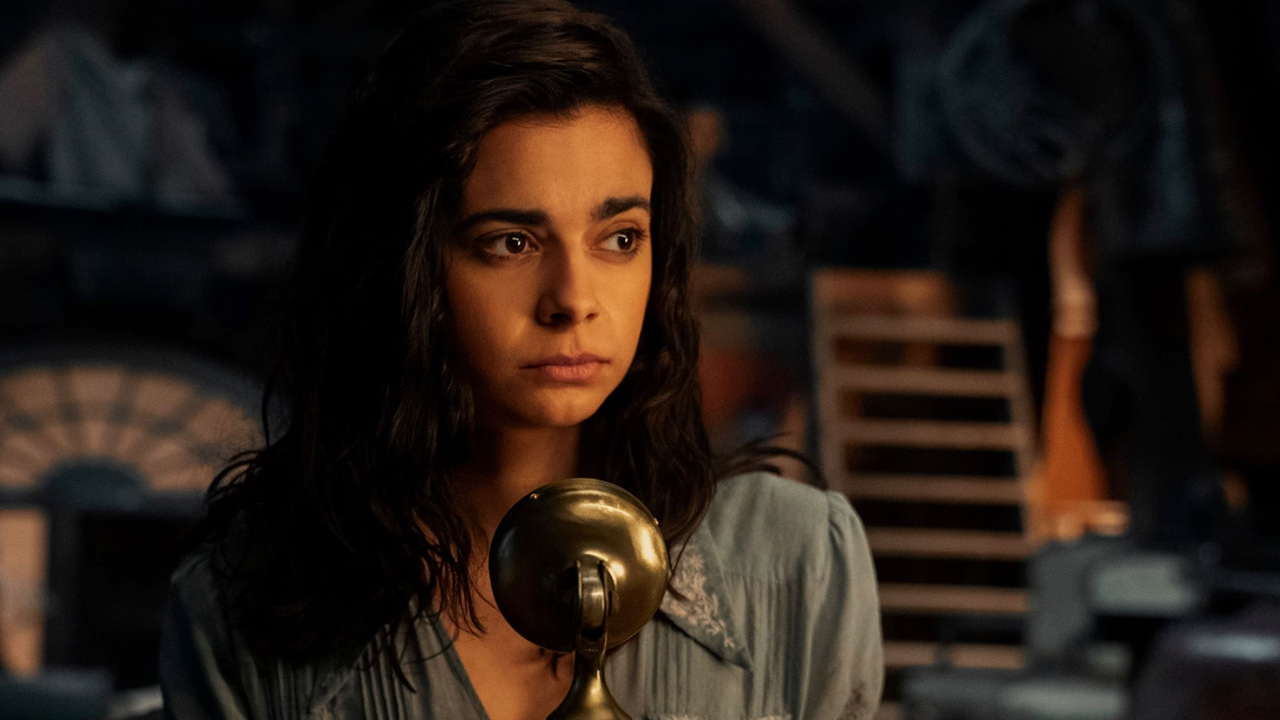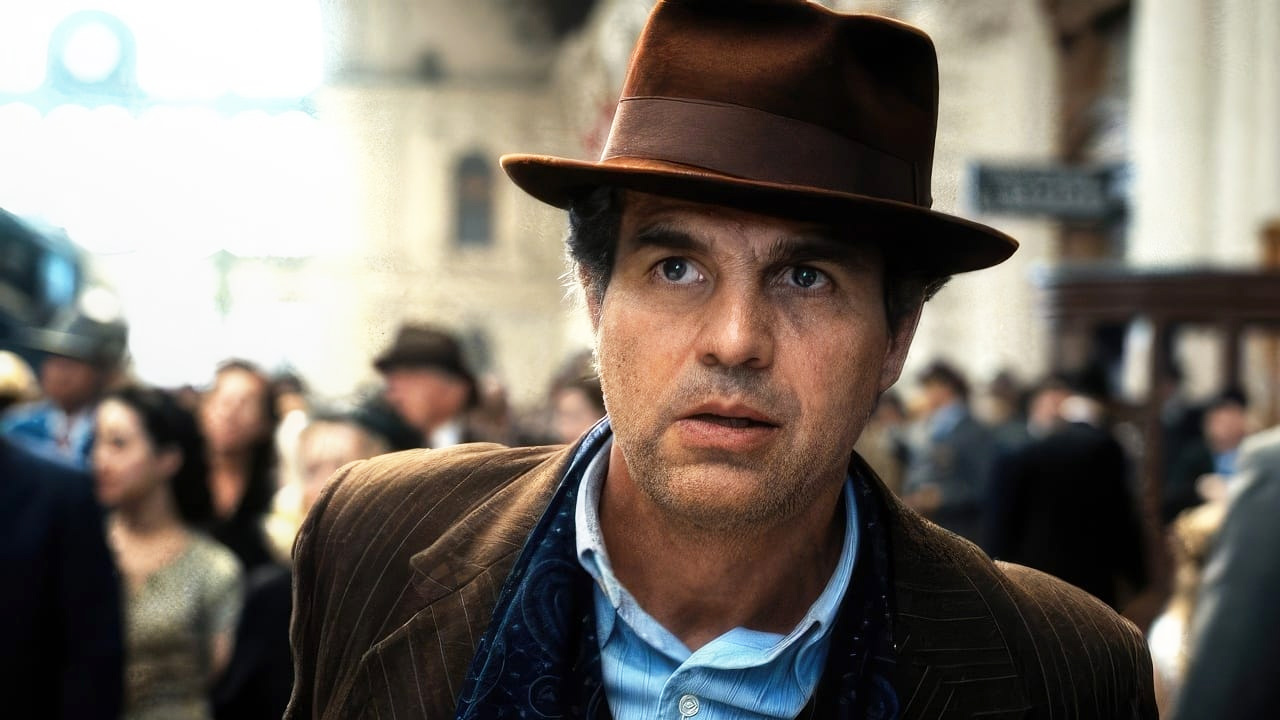All the Light We Cannot See eventually succumbs to melodrama and hamminess

Based on a best-selling book, WWII drama All the Light We Cannot See can’t avoid the most melodramatic impulses of its inspiring plot. Luke Buckmaster praises the miniseries’ understated actors, though.
I was on edge throughout All the Light We Cannot See—hunched forward, fingers clawed. Not because of the noise and stink of its WWII setting, riddled with explosions and Nazis, but due to the constant threat of the drama plummeting into the realms of the histrionic and the hammy. This danger can be felt from the start, director Shawn Levy not shy in cranking up the violin strings to emotionally emphasise a script (by Steven Knight, adapting Anthony Doerr’s best-selling book) already tinkering on the precipice of melodrama.
The show’s two key narrative strands revolve around a blind young French woman, Marie-Laure (Aria Mia Loberti), who broadcasts a radio show from her uncle’s house in the French coastal city of Saint-Malo, and Werner Pfennig (Louis Hofmann), a young German expert in radio transmissions, recognised as a genius by the Nazis and fast-tracked through the military system. The first of the series’ four episodes begins with the camera whisking above a body of water, at night, towards Nazi-occupied France: a splash of quietude before the clamour and carnage.
Broadcasting her show while bombs drops outside, Marie-Laure—whose location is unknown by the Germans—addresses her absent father in the hope he’s out there somewhere listening, saying he told her he “would be gone for six days” but “it’s been more than a year.” This monologue hits an expository sweet spot, delivering backstory in a narratively justified context without resorting to the cheap convenience of a conventional voice-over. As the building rattles and explosions continue, Marie-Laure recommences reading 20,000 Leagues Under the Sea, as if to say: even the terror of war can’t quell the impact of great art.
Elsewhere, in another heavily bombed neighbourhood, Werner is tuned in, admitting to a colleague that he’s listening to foreign broadcasts—an act punishable by death. He reflects on how, through sharing knowledge and literature, “the insanity of this old man’s war might come to an end,” establishing him as a character we don’t see all that often: the good German, the good Nazi, who hates the regime but of course keep his views about the war and the Führer (mostly) to himself.
Will these two enthusiasts of the good ol’ fashioned wireless meet? Fall in love? Plot a resistance? Form a radio hobbyist group? They’re separate for most of the runtime as the plot jumps around, switching locations and timelines, for instance detailing Werner’s Nazi education and introducing Marie-Laure’s family. The latter threads deploy the show’s biggest stars: Hugh Laurie as her uncle Erienne and Mark Ruffalo (in a small but impactful part) as her wise and kindly father Daniel.

My fears that the drama would fall into a big, bubbling vat of cheese were momentarily allayed when All the Light We Cannot See unexpectedly introduced an Indiana Jones-esque plotline involving a supposedly magical stone, called the Sea of Flames, which legend has it can cure every illness. It’s sought after by a Nazi who believes Marie-Laure knows its whereabouts. Chasing the old “live forever” chestnut, this guy would look more at home in a Saturday matinee adventure, during which he would eventually exit stage left by getting sucked into an alien portal, or falling backwards off a cliff, or drinking from the wrong cup while pursuing the Holy Grail.
Our first hint of this weirdly incongruous plotline, which might’ve worked better in the book, occurs in an early flashback scene during which Marie-Laure, as a child, is taken to a museum by Daniel, who insists that “everything has a voice, you just have to listen.” Lines like that increased my fears of being pelted with schmaltz and sentiment. The show mostly stays on the right side of the line, stagey but not hokey, benefiting from an actors who deliver such dialogue as understatedly as they possibly can, resolved to minimise the melodrama.
But there’s only so much they can do: the histrionic and the hammy eventually take over in the final episode, greedily devouring the drama. The sight of Marie-Laure looking melancholically out to sea, waves rolling against the shore, and the act of two characters delivering the line “the most important light is the light you cannot see” in unison make it clear the fight’s been lost.


















